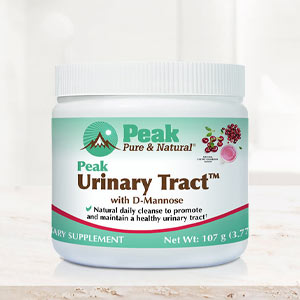About 400 different species of bacteria live in your gut microbiome.
There are “good” and “bad” bacteria, and most of the time, the good bacteria are able to keep the bad ones in line.
But you may be surprised to know just how easily that perfect balance can go out the window…
You’re probably well aware that antibiotics can cause dysbiosis, but so can many common prescriptions.
Even if you have indigestion on occasion or eat contaminated food (hey, it happens) or suffer from inflammation (it’s way more common than you think) — you could be at risk of serious infection from harmful bacteria, including E.coli and Klebsiella pneumoniae.
Both E. coli and Klebsiella pneumoniae are known culprits in a variety of infections, including urinary tract infections, bloodstream infections and pneumonia.
E. coli is also a common cause of gastrointestinal infections like diarrhea, while Klebsiella can lead to more severe infections like meningitis and liver abscesses.
These two nasty bacterial strains are usually present in the gut in low numbers, and as long as they stay that way, all is well. But you can see how easily things can go south.
If you’d like a little “insurance” to ensure that doesn’t happen, we’ve some encouraging news for you…
How fiber can reduce your risk of infection
An international group of medical researchers has shown that dietary fiber plays a crucial role in preventing the overgrowth of harmful gut bacteria.
The researchers analyzed gut microbiome data from over 12,000 people across 45 countries, trying to identify patterns that predict the gut’s susceptibility to being overrun by harmful Enterobacteriaceae bacteria, including E. coli and Klebsiella pneumoniae.
The good news is that 135 microbial species commonly found in healthy guts seem to protect against “bad” bacteria.
One of these species, known as Faecalibacterium, stood out for its ability to protect the gut by producing short-chain fatty acids (SCFAs) that play a critical role in making the gut inhospitable to harmful bacteria.
And how exactly do they produce SCFAs? By breaking down dietary fiber.
Lots of doctors recommend probiotics to manage “bad” gut bacteria, but these researchers challenge that notion.
Their study revealed that 172 microbial species coexist with these pathogens, competing for the same nutrients.
“Taking probiotics that compete for the same nutrients with the bad bacteria to try and starve them out isn’t going to work,” explained Dr. Alexandre Almeida, senior author of the study.
Instead, he says that altering the gut environment through dietary adjustments offers a more effective strategy.
This is why getting a good amount of fiber in your daily diet is crucial. It’s not just to keep your bowels regular; it’s so that your gut can stay in balance and not be susceptible to E. coli and other bacteria that cause infection, inflammation and disease.
Too little fiber also can lead to a deadly case of sepsis. Sepsis occurs when your immune system releases chemicals into the bloodstream to fight an infection somewhere in your body, such as those mentioned above. However, the immune system goes into overdrive, triggering body-wide inflammation and a significant risk of organ failure and death.
Fiber: No longer just for regularity
A diet rich in plant-based foods and fiber is crucial for supporting the gut bacteria that produce these beneficial SCFAs. But even if you eat well, the vast majority of Americans get woefully insufficient amounts of dietary fiber.
Here’s some research on how fiber fights heart disease, stroke, and diabetes, along with a comprehensive list of foods and amounts to add to your diet, gradually, so that you’re getting your ideal amount of fiber.
Inulin fiber is especially known for producing SCFAs. You can find a list of foods that provide inulin here.
And if you want to follow a well-rounded diet to up your fiber intake, there’s nothing better than the Mediterranean diet. Here’s the quick and easy version of why this diet is so good for your gut, and how to get started.
Believe me, your taste buds and your gut will thank me!
Sources:
Feeding Good Gut Bacteria Through Diet May Help Prevent Infections — Integrative Practitioner
Ecological dynamics of Enterobacteriaceae in the human gut microbiome across global populations — Nature Microbiology
Read full article here





